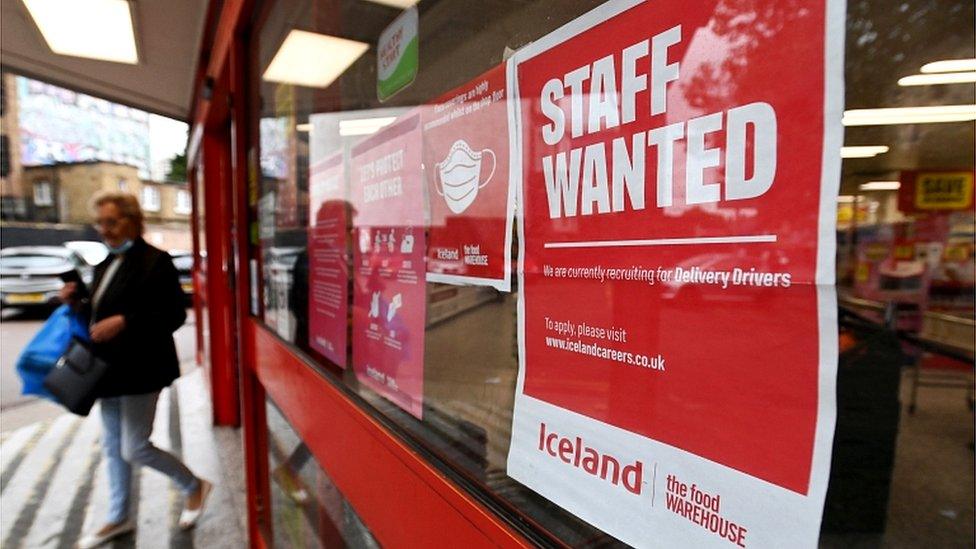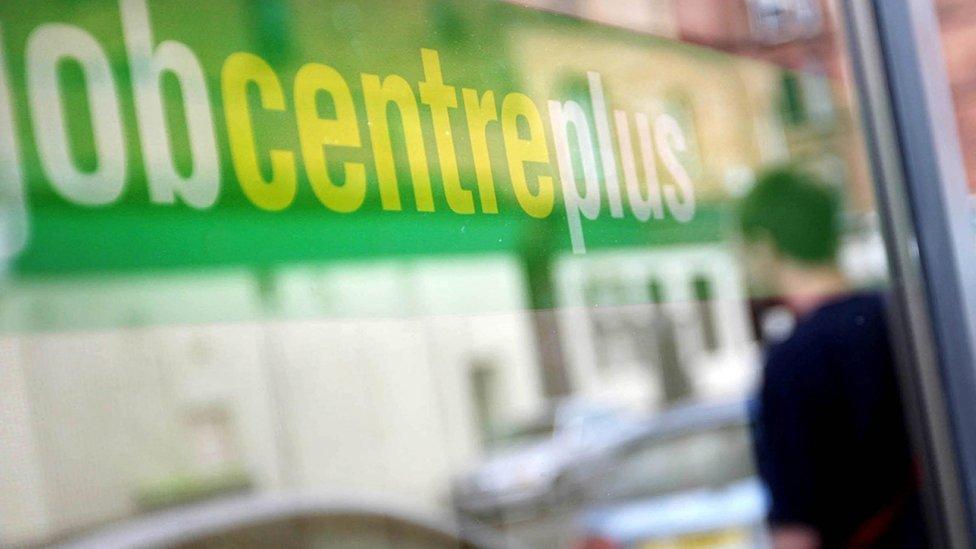Employment rate in Scotland continues to rise
- Published
- comments

The number of people in employment in Scotland continued to rise slightly in the past three months, according to official figures.
The Office for National Statistics, external said more than 2,630,000 people aged 16-64 were working between June and August.
It followed another slight increase in last month's figures.
The latest rate of 74.3% was 0.3 of a percentage point up on the previous quarter but still 1.1 percentage points lower than pre-pandemic levels.
Scotland and London are the only parts of the UK where employment remains lower than before the coronavirus pandemic.
Across the UK last month, there was an employment rate of 75.3% and the number of job vacancies in hit a 20-year high.
The unemployment rate in Scotland remained at 4.4%.
Employment minister Richard Lochhead said the Scottish government would "continue to do all we can to support employees and employers" following the end of the UK government's furlough scheme.
He said: "In 2021/22, we will invest more than £1bn to create jobs and ensure people have the skills needed to meet the economic opportunities of the future.
Mr Lochhead added the UK government "needs to take action on immigration policy" to help solve the vacancy rate challenges.

Hospitality is among the sectors struggling to fill vacancies
Scottish Secretary Alister Jack welcomed the latest figures.
He said: "The UK government's priority is getting people back into work - so it is pleasing to see the latest employment figures once again show positive signs of recovery for Scotland with more people returning to employment.
"Our Plan for Jobs is helping people secure well-paid, skilled employment as we build back better from the pandemic, and we will continue to do all we can to see our economy flourish again."
'Acute skill shortages'
The furlough, or job retention scheme, came to an end on 30 September.
According to research by the Resolution Foundation, almost one million workers were believed to still be on the scheme when it closed.
Many forecasters, including the Bank of England, said they would expect a small rise in unemployment after the scheme was scrapped.
Yael Selfin, chief economist at KPMG UK, said labour market shortages "could stunt" the UK's economic recovery from the pandemic.
"The recovery is testing the capacity of the economy to adjust to a new post-pandemic environment, a task made more difficult by the reduced availability of overseas workers," she said.
"Acute skill shortages have pushed vacancies to record levels for a second month in a row in September, as employers struggled to find skilled staff."
Related topics
- Published14 September 2021

- Published12 October 2021

- Published17 August 2021
